Get Your Hands Dirty Day
Grassroots Movement Seeks to Seed Public Spaces with Edibles
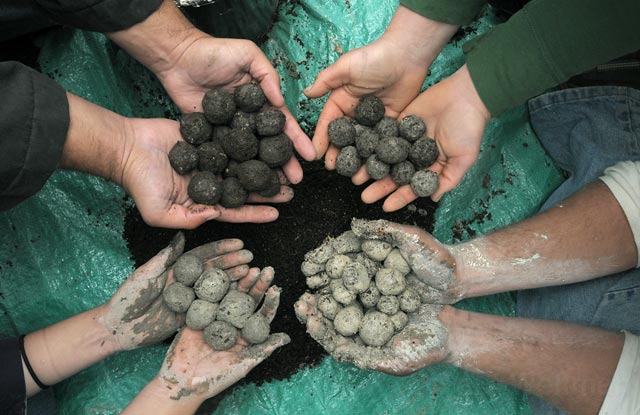
To even begin to suggest that Alison Hensley and Tim Sexauer were leaders would be to miss the point entirely; Hensley and Sexauer are happy to admit they’re just bobbing along on the swells of a sea of seeds. That’s a good thing, too, as what they’re advocating, along with many others in this grassroots (no pun intended) movement, is that Santa Barbarans go out and break the law on Sunday, February 27.
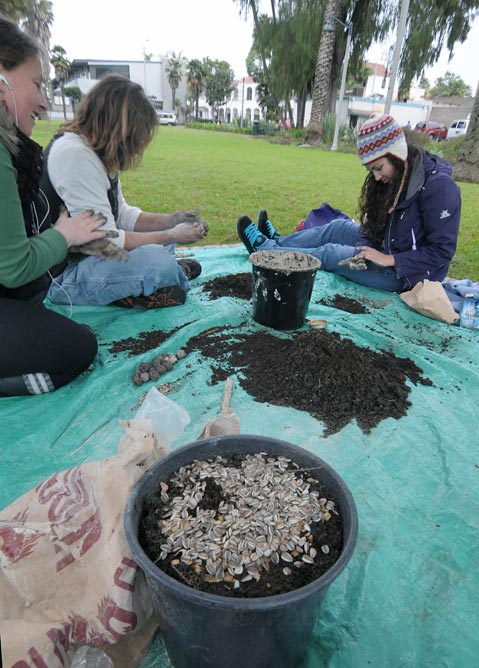
“The ultimate answer is to eat local, and the ultimate solution is to grow food, everywhere in local spaces,” Sexauer insists. As a flyer promoting the event puts it: “The sweet, subtle revolution is now. On February 27, 2011, you are invited to plant something edible in some public space of Santa Barbara: parks, greenbelts, downtown plant space, etc. It is illegal to plant food in public space, so preferably do it with someone’s grandmother. If we arrest grandma for gardening, this will go global for sure.”
This active segment of the Food Movement held a seed-ball–making party on February 19, but for those who missed that event, Sexauer suggests, “Go around and look at places you think you could plant things. Ask someone who knows how and where to plant. Google for answers. Then do it not just on the 27th, but all the time. There could be rosemary around that tree; there could be wild arugula at the corner of Anacapa and Victoria.”
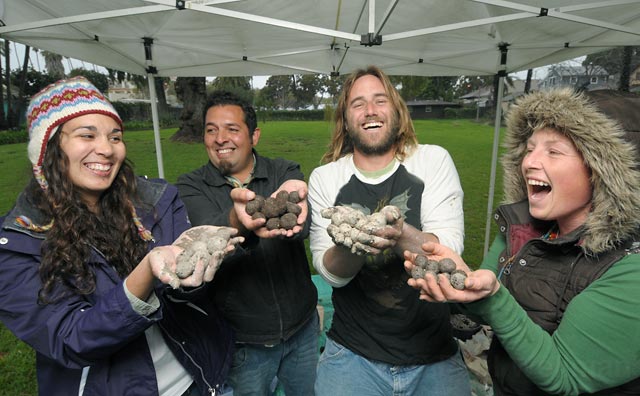
Hensley, who was one of the organizers of the highly successful SOL Food Festival in October, asks, “Why can’t the gardeners be our farmers? What will it take for Santa Barbara to jump up to the next level of sustainable living? The actions aren’t quite in alignment with people’s beliefs, but now we’re at a tipping point.”
Both Hensley and Sexauer point to recent Santa Barbara events like the Edible Institute and Michael Pollan’s sold-out lecture as evidence that the town is awakening to a need, that the ways people currently eat have to change for myriad reasons—ethical, economical, environmental. “As masses make their will known by subtle acts, the laws will follow,” Sexauer says. “It’s so simple and makes sense—the people involved aren’t anarchist street kids. But there comes a time when certain things have to happen if the food system, as it is, is completely unsustainable. This event isn’t coming from any one central organization; it’s a universal need in a system that’s kind of crumbling upon itself. People are uncomfortable, maybe are scared a little bit. But growing food in a public space is empowering.”
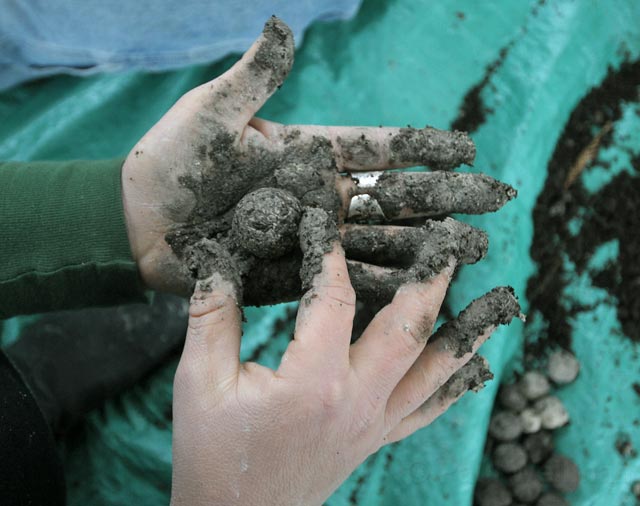
Hensley is also attracted to how much this seeding will necessarily grow more than plants. “People will have to ask, ‘Who takes care of these, now?’ and that will get them to care more for public land,” she asserts. “We could eventually have homeless grow some of their own food. We don’t need to bring in all these tropical plants from around the world for a beautiful landscape. Vegetables like chard are beautiful. And then you could teach people not to trash things when you can tell them that cigarette butt they just threw out is now where their food is coming from.”
The two also admit that they want to ease the system into a new way of thinking about the food supply, not shock it. “We don’t want to fight big business, just get them to the point where they have to respond,” says Sexauer. “Sustainability is becoming profitable. Companies are now competing to be the Google of public growing; people are even making apps for foraging, now.”
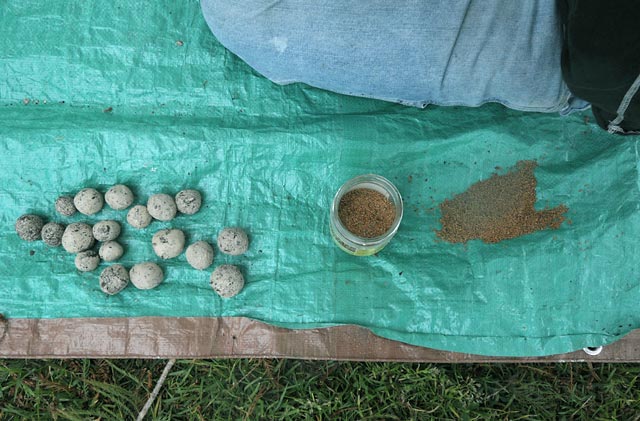
Hensley stresses, “This isn’t an ‘F you, we’re going to plant food!’ It’s respectful.” Sexauer follows up, claiming, “It’s not anger, it’s not protest, it’s not confrontation, or even an enjoyment of breaking the law—very few people want to do something illegal.” Instead, both activists and their fellow seed planters see this day of action as a first step in a greater battle to take food production back from the big companies and make it sustainable in an ever more perilous age.
Sexauer sums it up: “If it’s a crime, it’s not just a victimless crime; it’s a crime that eradicates victims.”
4•1•1
People will be planting in public spaces on Sunday, February 27. For more general information, see sites such as eatthestreet.org, neighborhoodfruit.com, or fallenfruit.org.



